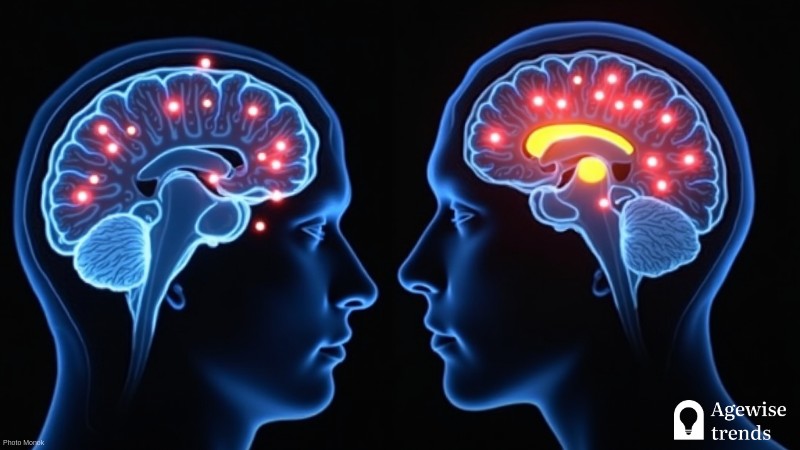Aging is inevitable, but cognitive decline doesn’t have to be. While some changes in memory and processing speed are natural over time, a sharp mind can be maintained well into later years with the right habits.
Good nutrition and regular movement are key pillars of brain health, supporting circulation and reducing risk factors for cognitive decline. Physical activity, from daily walks to strength training, enhances brain cell connectivity, while a nutrient-rich diet fuels cognitive function.
However, a healthy body alone isn’t enough—mental agility thrives on intellectual curiosity, emotional resilience, and social engagement. By continuously challenging the brain, fostering meaningful connections, and embracing lifelong learning, older adults can preserve their memory, problem-solving skills, and adaptability for years to come.
Key Takeaways
Maintaining cognitive function as you age involves proper nutrition, regular physical activity, mental stimulation, social engagement, emotional well-being, and a positive outlook.
- Regular physical activity and a nutrient-rich diet support brain health by improving circulation and reducing risk factors for cognitive decline.
- Continued learning through mental exercises such as reading, puzzles, or acquiring new skills can enhance neuroplasticity and help preserve memory and problem-solving abilities.
- Emotional well-being is essential; managing stress, maintaining social connections, and keeping a positive attitude toward aging all contribute to better cognitive health.
Engaging your brain with continuous learning
One of the most effective ways to preserve cognitive function is through continuous learning. The brain thrives on challenges, and when regularly stimulated, it remains adaptable and resilient. Neuroscientists have found that mental exercises, such as reading, puzzles, learning new skills, or even taking up a new language, contribute to neuroplasticity—the brain’s ability to form new connections and adapt over time.
Learning something unfamiliar forces the brain to work harder, strengthening neural pathways. Activities like playing a musical instrument, solving complex problems, or even teaching others a skill you already know can reinforce memory retention and keep the mind sharp. Research indicates that older adults who actively engage in such activities perform better in memory and problem-solving tasks compared to those who don’t.
Emotional well-being and cognitive longevity
Stress, anxiety, and depression have been linked to an increased risk of cognitive decline. Chronic stress leads to elevated levels of cortisol, a hormone that, in excess, can impair memory and shrink the hippocampus, the part of the brain responsible for learning and memory. Managing stress through meditation, mindfulness, or engaging in enjoyable activities can mitigate these effects and support mental clarity.
Social interaction is another essential factor in emotional and cognitive well-being. Older adults who maintain strong social connections tend to have a lower risk of dementia. Conversations, shared experiences, and emotional support contribute to brain activity and reduce feelings of loneliness, which has been associated with cognitive decline. Brain power clinics and cognitive therapy programs have emerged in many parts of the world to help seniors stay mentally engaged, underscoring the importance of social and mental stimulation.
Maintaining a positive outlook on aging also matters. Studies have found that individuals who view aging as a time for growth and experience rather than decline tend to perform better cognitively. This perspective encourages ongoing engagement in life and a proactive approach to maintaining mental sharpness.
The power of routine and purpose
Having a structured routine can significantly benefit cognitive function. Engaging in daily habits that challenge the brain—such as playing chess, writing, or even keeping up with current events—reinforces mental agility. Additionally, procedural memories, such as riding a bicycle or cooking a familiar dish, remain intact even as certain cognitive functions slow down with age.
Many older adults thrive in roles that require careful thought and accumulated knowledge, such as editorial work, mentoring, or strategic consulting. The ability to apply years of experience in problem-solving and decision-making highlights how cognitive function can remain strong despite slower processing speeds.
As we grow older, our brains continue to have the remarkable capacity to adapt, regenerate, and compensate for certain losses. The key lies in nurturing it with the right habits, embracing lifelong learning, staying physically active, fostering emotional well-being, and maintaining a sense of purpose. By doing so, aging can be approached with confidence, knowing that cognitive health is within our control.














